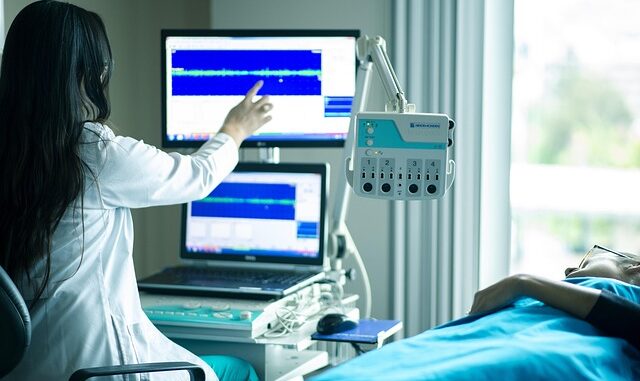
Summary
This article explores the transformative potential of Artificial Intelligence (AI) in revolutionizing schizophrenia diagnosis. We delve into various AI-driven approaches, including machine learning models analyzing fMRI scans, EEG data, and even speech patterns, showcasing their efficacy in early and accurate detection. The integration of AI in mental healthcare promises not only improved diagnostic accuracy but also personalized treatment plans, potentially reshaping the future of schizophrenia management.
** Main Story**
AI: Changing the Game in Schizophrenia Diagnosis
Schizophrenia, it’s a really tough mental illness. It messes with how people think and feel. That’s why getting diagnosed early and correctly is so important for helping people manage it. But honestly, the old ways of diagnosing it often aren’t good enough, which makes it hard to be accurate and reach enough people. That’s where Artificial Intelligence (AI) comes in. It’s a game-changer that could totally revolutionize how we find and deal with schizophrenia. So, let’s dive into how AI is making things better in mental healthcare.
AI-Powered Diagnostics: Seeing What Others Miss
There’s a lot of cool research happening right now using AI to make schizophrenia diagnoses better. Machine learning models, which are a type of AI, are getting really good at looking at complex data. Some studies are even showing that AI can predict schizophrenia pretty well just by looking at regular clinical data from Electronic Health Records (EHRs). I mean, it’s pretty amazing, right? And what’s more, this could really speed up when people get diagnosed and start treatment.
Peeking Inside the Brain: fMRI and EEG
Think about fMRI and EEG, those brain-scanning tools. They give us some pretty valuable looks at what’s happening in the brain. The thing is, AI can really make sense of all those complex brain patterns. These algorithms can spot tiny problems that might mean someone has schizophrenia. For example, there’s this AI system called EMPaSchiz. One study found that it could predict who was likely to have schizophrenia based on brain activity from fMRI scans, with an accuracy of about 87%. Which is really impressive. The cool thing is, it does this without needing patients to be on medication, so there aren’t any extra factors messing things up.
And it’s not just fMRI. There’s also a lot of work being done with EEG data. Deep learning models, especially Convolutional Neural Networks (CNNs), are great at processing complicated EEG signals. These models are able to pick out neural patterns that could indicate schizophrenia. Some studies have found that CNNs can tell the difference between EEG signals from healthy people and those with schizophrenia, with accuracy rates above 99%. You know, it seems like something that was once science fiction, and yet here we are.
Listening Closely: The Power of Speech
But here’s something you might not have thought about: speech. Subtle things in how someone speaks can be early signs of psychosis. Researchers are looking into using AI to analyze speech patterns, like semantic density and how often someone uses sound-related words, to predict if someone might develop psychosis. Talk about innovative! It’s a non-invasive way to do it and could be really useful.
Beyond Diagnosis: The Bigger Picture
It’s not just about diagnosing, though. AI can also look at patient data to find early warning signs of schizophrenia. This helps doctors step in early and maybe make episodes less severe. It can even predict who’s at risk of getting worse or relapsing, so treatments can be tailored to them. And if you think about it, personalized treatment plans that are based on what AI tells us could really improve how patients do overall and cut down on healthcare costs in the long run.
Challenges and Opportunities
Of course, there are some challenges. It’s not all smooth sailing. The data has to be good, there can’t be biases, and AI models need to be tested in lots of different situations. If we want to actually use these AI tools in clinics, we need to make sure they’re based on diverse data and that we can understand how they work. It’s crucial, really.
That being said, the future looks promising. As technology gets better and research moves forward, AI tools will probably become essential for diagnosing, watching, and treating schizophrenia. This could change patient care for the better, make treatments work better, and ease the burden of this illness. I think it’s safe to say that these advancements are helping to create a more personalized and effective approach to schizophrenia management. And it’s about time, don’t you think?


The speech pattern analysis is particularly compelling. Could AI models also assess the emotional content and prosody of speech to further refine the detection of subtle indicators of psychosis?